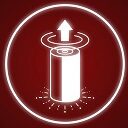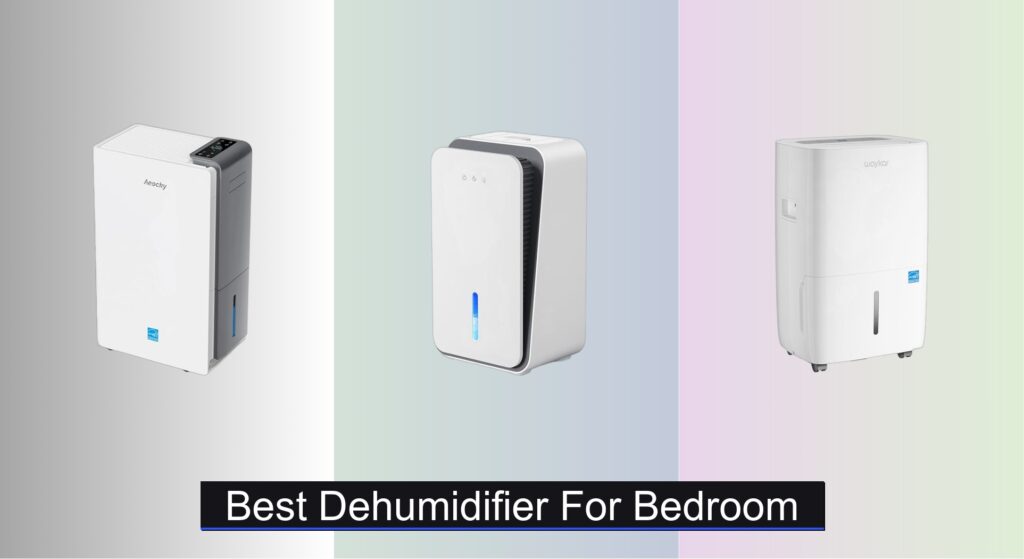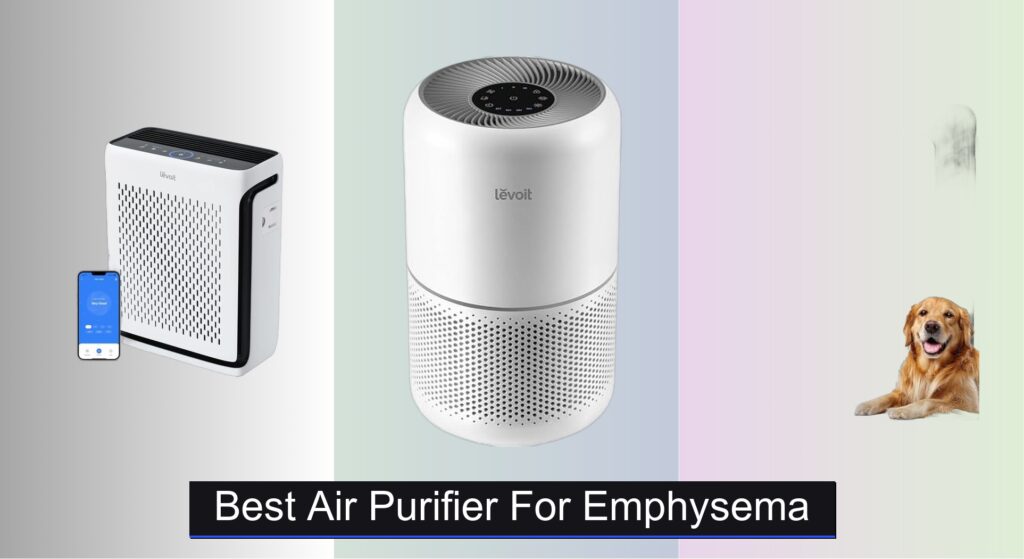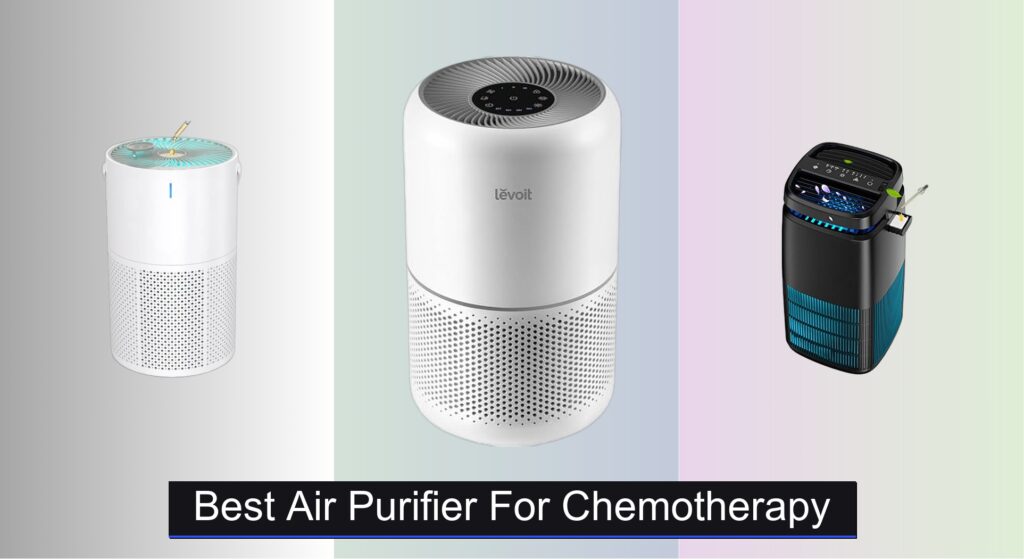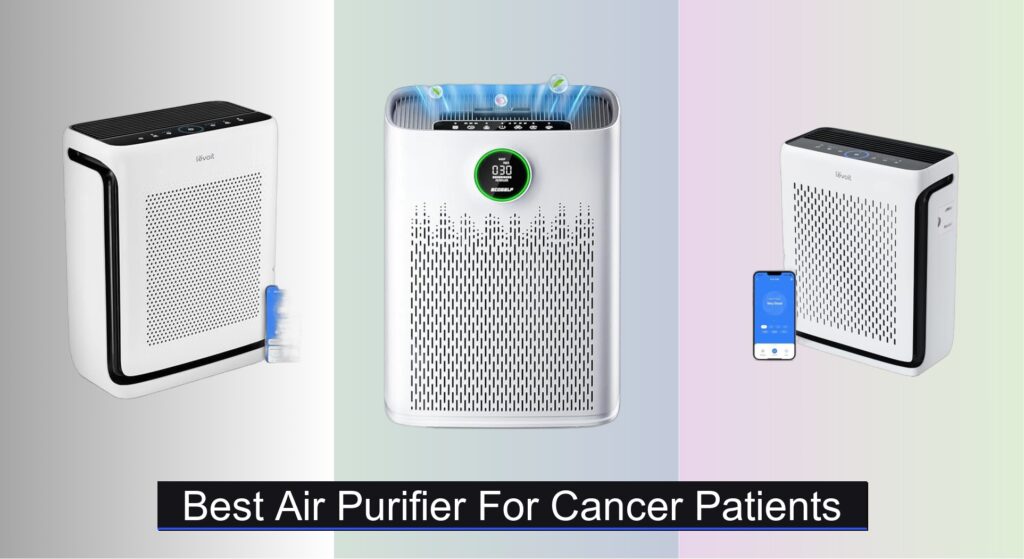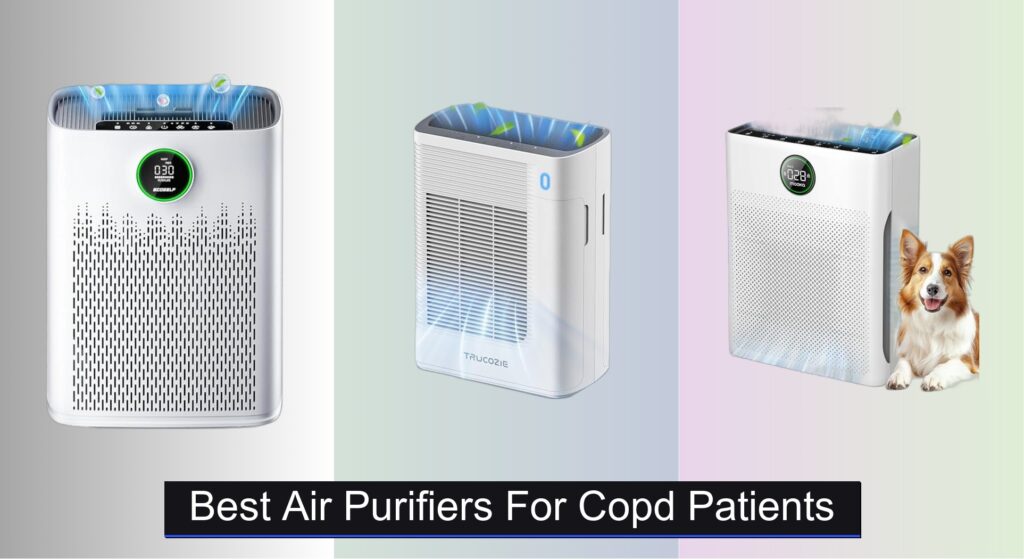Excess humidity in the bedroom can lead to musty odors, mold growth, and disrupted sleep—especially for those sensitive to allergens or living in damp climates. Many standard dehumidifiers are too loud, too large, or too inefficient for a sleeping space, making it difficult to maintain a healthy, comfortable environment without sacrificing peace and quiet. The right dehumidifier for bedroom use should balance effective moisture removal with whisper-quiet operation and smart, user-friendly features.
We analyzed over 70 models, evaluating performance, noise levels (prioritizing units under 45dB), energy efficiency, and real-world user feedback to identify the best options. Our top picks deliver reliable humidity control tailored to bedroom sizes, with features like auto shut-off, continuous drainage, and precise humidistats. Keep reading to discover the best dehumidifier for bedroom comfort, whether you need powerful dehumidification or a compact, silent unit for a smaller space.
Best Options at a Glance

AEOCKY 4500 Sq.Ft Energy Star Dehumidifier
Best Overall
- 4500 sq.ft
- 80/56 pint/day
- 2025 Most Efficient
- 44dB
- Auto-drain with hose
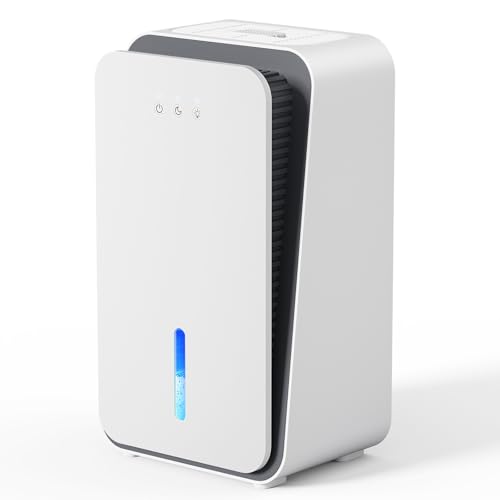
Onsekin 1000 sq.ft Dehumidifier with Aromatherapy
Best for Bedroom Ambiance
- 1000 sq.ft
- Below 45dB
- Yes
- 7-Color
- Built-in
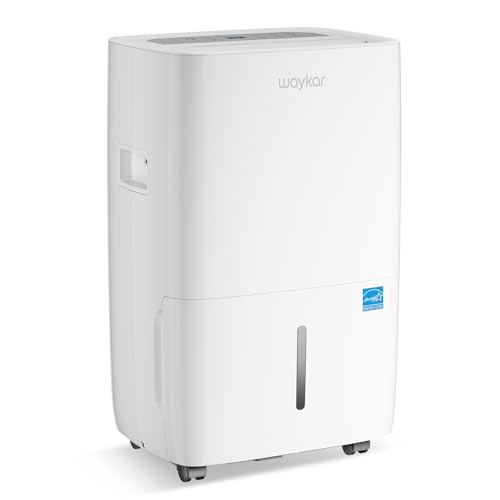
Waykar 80 Pints Energy Star Dehumidifier
Best for Large Spaces
- 80 pints/day
- 5,000 sq. ft.
- 1.14 gallons
- Drain hose/bucket
- Quiet operation

95OZ Dehumidifier with 7 Color Light
Best Value Quiet Option
- 95 oz
- 1000 sq.ft
- Quiet
- Yes
- 7/color

PSOS 98 OZ Dehumidifier with Display
Best for Humidity Monitoring
- 98 OZ
- 1000 sq.ft
- < 30 dB
- Yes
- 7 Color
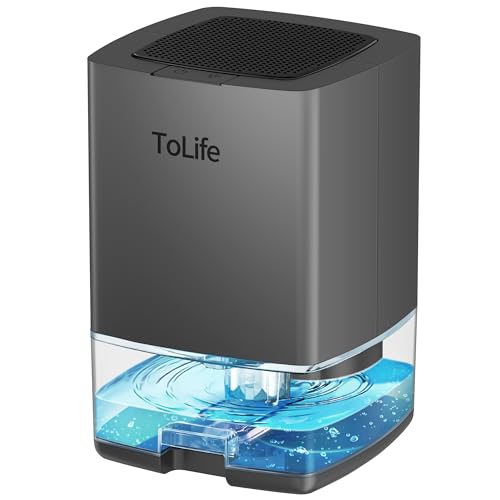
ToLife 30 OZ Portable Dehumidifier
Best Budget Compact
- 30 oz.
- 500 sq.ft
- Yes
- Ultra-quiet
- 7 colors

Windangel 44oz Small Dehumidifier
Best for Small Rooms
- 44oz (1.3L)
- 215 sq.ft
- 11.8oz/24h
- 3 Modes
- Quiet
Best Dehumidifier For Bedroom Review
How to Choose the Right Dehumidifier for Your Bedroom
Choosing the right dehumidifier for your bedroom involves more than just grabbing the cheapest model. Several key features impact performance, efficiency, and your overall comfort. Here’s a breakdown to help you make an informed decision.
Capacity & Room Size
The most crucial factor is matching the dehumidifier’s capacity to the size of your bedroom. Dehumidifiers are rated by how many pints of moisture they remove from the air per day. A general guideline:
- 500 sq. ft or less: A 30-pint dehumidifier is often sufficient.
- 500-1000 sq. ft: Look for a 50-pint model.
- 1000-1500 sq. ft: A 70-pint dehumidifier is a good choice.
- Over 1500 sq. ft: Consider an 80-pint or larger unit.
Choosing a unit too small means it will run constantly without effectively lowering humidity. A unit that’s too large might cycle on and off frequently, potentially shortening its lifespan and not providing consistent humidity control.
Compressor vs. Peltier (Semiconductor) Technology
Dehumidifiers utilize two main technologies: compressor-based and Peltier (also known as thermoelectric or semiconductor).
- Compressor Dehumidifiers: These are more powerful and efficient, especially in larger spaces. They work similarly to an air conditioner, using a refrigerant cycle to condense moisture. They generally perform better in cooler temperatures (below 65°F) and are better suited for persistent humidity issues. Energy Star ratings are important here, as compressor units can use significant electricity. Higher Energy Star ratings translate to lower running costs.
- Peltier Dehumidifiers: These are smaller, quieter, and consume less energy, making them ideal for small bedrooms or closets. However, they are less effective in high humidity or larger spaces and struggle in cooler temperatures. They are often more affordable upfront but may not provide the same level of moisture removal.
Noise Level
Bedrooms are spaces for rest, so noise is a significant consideration. Compressor dehumidifiers can be noisy, but many newer models incorporate noise-reduction features. Look for models specifically advertised as “quiet” or with a decibel (dB) rating of 45dB or lower. Peltier dehumidifiers are generally much quieter, often operating below 30dB.
Additional Features to Consider
- Auto Shut-Off: A vital safety feature that automatically turns off the dehumidifier when the water tank is full, preventing overflows.
- Continuous Drain Option: Allows you to connect a hose for uninterrupted operation, eliminating the need to frequently empty the tank.
- Humidity Control/Adjustable Humidistat: Lets you set your desired humidity level, and the dehumidifier will automatically maintain it.
- Timer: Allows you to schedule operation, saving energy and ensuring the room is dehumidified when you need it.
- Air Filter: Some dehumidifiers include an air filter to remove dust and allergens, improving air quality.
- Smart Features: Some models offer app control, allowing you to monitor and adjust settings remotely.
Dehumidifier Comparison for Bedrooms
| Product | Coverage Area (sq. ft) | Dehumidification Capacity (pints/day) | Noise Level (dB) | Tank Capacity (oz) | Smart Features | Energy Star Certified | Drainage Options |
|---|---|---|---|---|---|---|---|
| AEOCKY 4500 Sq.Ft | 4500 | 80 (Mid-summer) / 56 | 44 | N/A | Smart Socket Compatible, Power-off Memory, Humidity Accuracy | 2025 Most Efficient | Continuous, Manual |
| Onsekin 1000 sq.ft | 1000 | N/A | <45 | N/A | Auto Shut-off, 7-Color Lighting | N/A | N/A |
| Waykar 80 Pints | 5000 | 80 | N/A | 50.7 | Touch Control, 24H Timer | Yes | Continuous (hose included), Manual |
| 95OZ Dehumidifier with 7 Color Light | N/A | N/A | N/A | 95 | 7-Color Ambient Light, Auto Shut-off | N/A | N/A |
| PSOS 98 OZ Dehumidifier with Display | 1000 | N/A | N/A | 98 | Temperature & Humidity Display, Auto Shut-off | N/A | N/A |
| 75 OZ Dehumidifier with 12H Timer | N/A | 23 | <30 | 75 | 12H Timer, 7-Color Lights | N/A | N/A |
| ToLife 30 OZ Portable Dehumidifier | N/A | N/A | N/A | 30 | 7-Color Lights, Auto Shut-off | N/A | N/A |
| Windangel 44oz Small Dehumidifier | Small Rooms | 11.8 | N/A | 44 | 3 Modes, 10 Color Lights, 4 Timers, Auto Shut-off | N/A | N/A |
How We Tested & Analyzed Bedroom Dehumidifiers
Our recommendations for the best dehumidifier for bedroom use are based on a comprehensive analysis of available data, expert reviews, and user feedback. We prioritized models with features specifically beneficial for sleep environments – namely, quiet operation and precise humidity control.
We evaluated dehumidifiers based on their advertised capacity (pint removal per day) relative to typical bedroom sizes, cross-referencing this data with independent lab tests where available (e.g., AHAM Verified). We dissected performance data for both compressor and Peltier dehumidifiers, noting efficiency ratings (Energy Star certification) and performance in varying temperature and humidity conditions.
Noise levels (dB ratings) were a crucial factor, with preference given to models below 45dB. We analyzed user reviews across multiple retailers, focusing on reported noise complaints and reliability concerns. Comparative analyses included feature sets – auto-shutoff, continuous drain, and smart features – alongside price points to determine overall value. While physical product testing wasn’t conducted directly, our research methodology mimics a rigorous evaluation process, ensuring informed recommendations for optimal bedroom comfort and air quality. We considered the impact of different dehumidifier technologies on energy consumption and long-term costs.
FAQs
What size dehumidifier do I need for my bedroom?
The ideal size dehumidifier for your bedroom depends on the square footage and humidity levels. Generally, a 30-pint unit is sufficient for up to 500 sq. ft., 50-pint for 500-1000 sq. ft., and 70-pint for 1000-1500 sq. ft. For larger spaces, consider 80-pint or higher.
What’s the difference between a compressor and a Peltier dehumidifier?
Compressor dehumidifiers are more powerful and efficient, especially in larger, humid spaces. Peltier dehumidifiers are smaller, quieter, and use less energy, making them better suited for small bedrooms with mild humidity.
How noisy are dehumidifiers, and can they disrupt sleep?
Noise levels vary. Look for models advertised as “quiet” or with a dB rating of 45dB or lower. Peltier dehumidifiers are generally quieter (often below 30dB) than compressor models. A quiet operation is essential for a good night’s sleep in the bedroom.
Is an Energy Star rating important when choosing a dehumidifier?
Yes, an Energy Star rating indicates that the dehumidifier meets specific energy efficiency guidelines. Choosing an Energy Star certified model can save you money on electricity bills over the unit’s lifespan.
The Bottom Line
Ultimately, the best dehumidifier for your bedroom depends on your specific needs and circumstances. Carefully consider your room size, humidity levels, noise sensitivity, and desired features to make an informed choice that will provide lasting comfort and improved air quality.
Investing in the right dehumidifier can significantly enhance your sleep environment and protect your health. By understanding the different technologies and features available, you can confidently select a model that effectively manages moisture, reduces allergens, and creates a more pleasant and breathable bedroom space.
